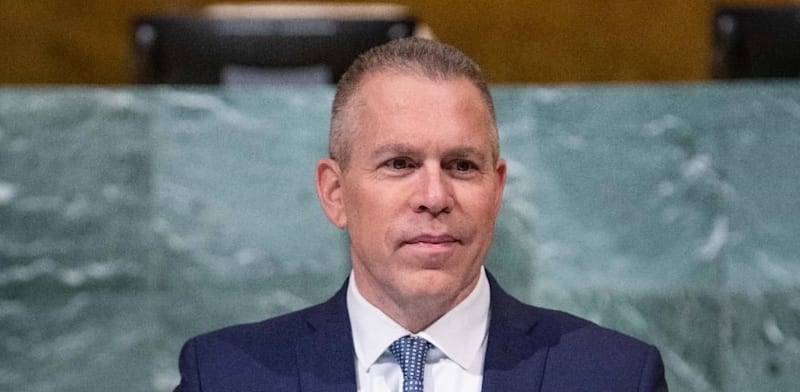ARTICLE AD BOX
In the wake of the Gaza ceasefire, Turkish President Recep Tayyip Erdogan's focus has switched to Syria.
When the war broke out, Syria was part of the Iranian axis, while Turkey led the Muslim Brotherhood axis, which supports Hamas but also abhors Shiites. Fifteen months later, Turkey has maintained the same policy, but the uprising against the Assad regime has turned Syria into its protectorate.
This not only benefits Turkish President Recep Tayyip Erdogan electorally, but also economically. The Global Investigative Journalism Network (GIJN) estimated in September 2021 that the cost of rebuilding Syria from the civil war would range between $250 billion and $400 billion. Just one day after the fall of the Assad regime, the Istanbul Stock Exchange recognized the opportunity, and the celebration spilled over to construction companies in the expectation that Turkey would play a significant role in rebuilding Syria. This is also reflected in the construction sector, whose executives are close to Erdogan.
Some 3.1 million Syrian refugees live in Turkey. The Turkish president is not interested in expelling them due to the damage it would cause to his voter base, and therefore their voluntary return would benefit him in every way.
Another and very significant factor for Israel is security assistance. Senior Israeli and IDF officials boasted about the extent of the destruction caused to Assad's military equipment before the rebels took over. However, the widespread attacks have spurred Turkey to use its defense industries to tighten its influence over Damascus, led by Abu Muhammad al-Julani. A high-ranking Syrian delegation, led by the foreign and defense ministers, arrived on a state visit in Ankara, during which the Turkish foreign minister directly addressed security assistance.
This cooperation stems primarily because of the Kurds. Today, the Kurdish-led Syrian Democratic Forces (SDF) de facto control most of northeastern Syria. This is a situation that Turkey does not accept due to concerns about the independent aspirations of the large Kurdish minority in their country. Erdogan is limited in his ability to act, because the Kurds are friends of the US, which provides them with security assistance, including forces on the ground.
But this week President Donald Trump, who does not support involvement in other people's wars, entered the White House again. On the other hand, in his previous term, he removed Turkey from the F-35 project, following its insistence on purchasing S-400 batteries from Russia.
Yaki Dayan, who in the past served as a senior adviser to Israeli Foreign Ministers Tzipi Livne and Silvan Shalom, says that Trump's relations with Turkey are ambivalent. "Trump likes strong leaders like Erdogan, but on the other hand, he did not hesitate to impose sanctions in his first term. I assume that Turkey will be required to make gestures on the Kurdish issue, which is significant for the US, because they collaborated with the Americans against ISIS, while they still hold ISIS prisoners. This is not entirely Trump's focus, but I assume that Erdogan will be required to restrain himself."
RELATED ARTICLES
A greater threat from Iran?
Through that security cooperation, Turkey is already, to one degree or another, on Israel's borders. At the same time, the recommendations of the Nagel Commission, which defined the Turkish threat as "greater than the Iranian threat," have been widely covered in the Turkish media, after Erdogan stated in recent months, for example, that Israel aims to invade his country.
This week, due to the first phase of the ceasefire with Hamas that went into effect, Ankara refined its messages, especially regarding the Turkish trade embargo imposed last May. Nail Olpek, head of the Turkish Directorate for International Trade Relations (DEIK), said that Turkey may resume trade with Israel "if peace is permanent."
The main Israeli dependence on Turkey stems from the construction industry. Therefore, a loophole was quickly found - in the goods destination section, "Palestine" is written instead of Israel, but since the Palestinians have no ports, the goods arrive at Israeli ports and remain there.
Now, due to the ceasefire in the Gaza Strip and tensions in Syria, in which Turkey is calling on Israel, as expected, to withdraw from the territories it recently took control of - Ankara is making conciliatory hints. However, the renewal of fighting in the Gaza Strip and direct clashes with the Syrian rebel army could lead, together or separately, to a deterioration in Israeli-Turkish relations. Dr. Hay Eytan Cohen Yanarocak, an expert on Turkey at Tel Aviv University's Moshe Dayan Center and the Jerusalem Institute for Strategy and Security, concludes that the Turks do not mix arenas, and manage their influence on the Gaza Strip and Syria separately. "Israeli-Turkish trade depends on the Gaza issue, not the Syrian one. When you look at this aspect, Erdogan is concerned with eliminating the Israeli presence in the territories in Syria it held in 1974, but even if Israel withdraws from the areas it recently entered, he will criticize Israel occupation of the Golan Heights. Erdogan will use Syria to deteriorate relations with Israel but on a low flame."
Published by Globes, Israel business news - en.globes.co.il - on January 23, 2025.
© Copyright of Globes Publisher Itonut (1983) Ltd., 2025.

 1 month ago
69
1 month ago
69







 English (US) ·
English (US) ·